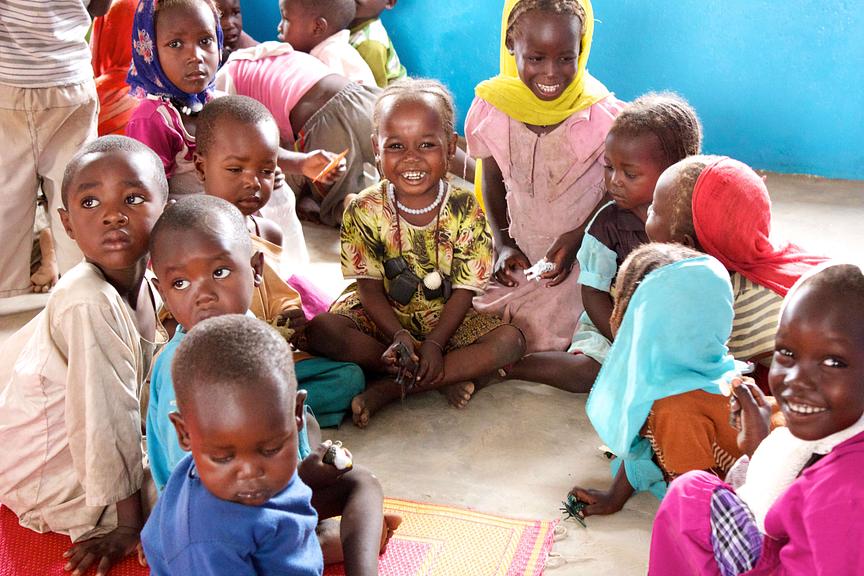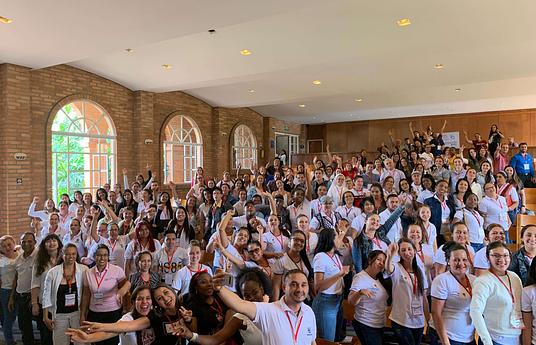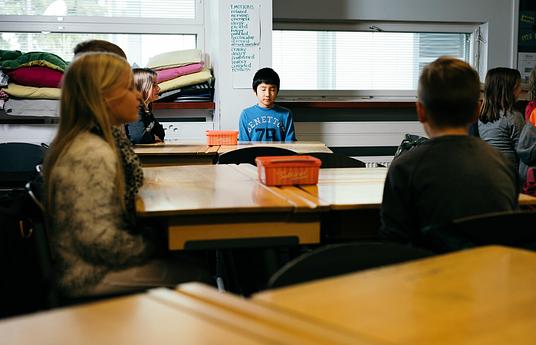Levels of displacement are the highest on record; in early 2019, 79.5 million people worldwide have been forcibly displaced, of whom nearly 26 million hold refugee status – over half of them under the age of 18. Additionally, an estimated 87 million children under age 7 have spent their entire lives in conflict zones. iACT co-created the Little Ripples program with refugees to address the needs of young children affected by humanitarian emergencies and forgotten crises.
The history of Little Ripples begins with iACT’s work in eastern Chad to support Darfuri refugees, documenting life in the refugee camps to help spur global action. The iACT team asked the Darfuri refugee population what services they needed and wanted most – the answer was support for young children. As a result, over the next three years, iACT worked with experts and practitioners in the areas of child development, early learning, trauma recovery, psychology, and mindfulness to develop the Little Ripples program.
Little Ripples is designed to be refugee and community-led in order to build long-term capacity and address the unique needs of children and communities affected by trauma, violence, displacement, and uncertainty. Refugees and community members learn about the Little Ripples curriculum and approach through an in-depth, participatory teacher training and adapt the curriculum and program activities to their culture and context. Program activities can be adapted to take place in schools, child-friendly spaces, community centers, and homes (often referred to as Ponds). Ideally, each learning space employs two teachers to care for and instruct up to 45 children.
The Little Ripples curriculum was co-created with refugees and developed in collaboration with experts; ensuring that the program includes best-practices for refugee children and those who have experienced trauma and hardship. The curriculum is grounded in play-based education and incorporates social-emotional learning, empathy development, positive behavior management, peacebuilding, and mindfulness. If children are in an emotionally and physically safe space and learning through play, then they will learn. Little Ripples can be used alongside any academic pre-primary curriculum as a methodology.
Over the last five years, Little Ripples has expanded into four refugee camps in eastern Chad, reaching 6,200 Darfuri refugee children and training 173 refugee teachers. Little Ripples has also been adapted and implemented with Central African refugees in Cameroon and the Central African Republic, Burundian refugees in Tanzania, and a diverse team from such countries as Afghanistan, Iran, Iraq, Syria, and Congo in Greece – training 220 teachers and reaching more than 8,000 children.
iACT seeks to expand the impact of Little Ripples through partnerships with refugee communities, community-based organizations, and international NGOs.



